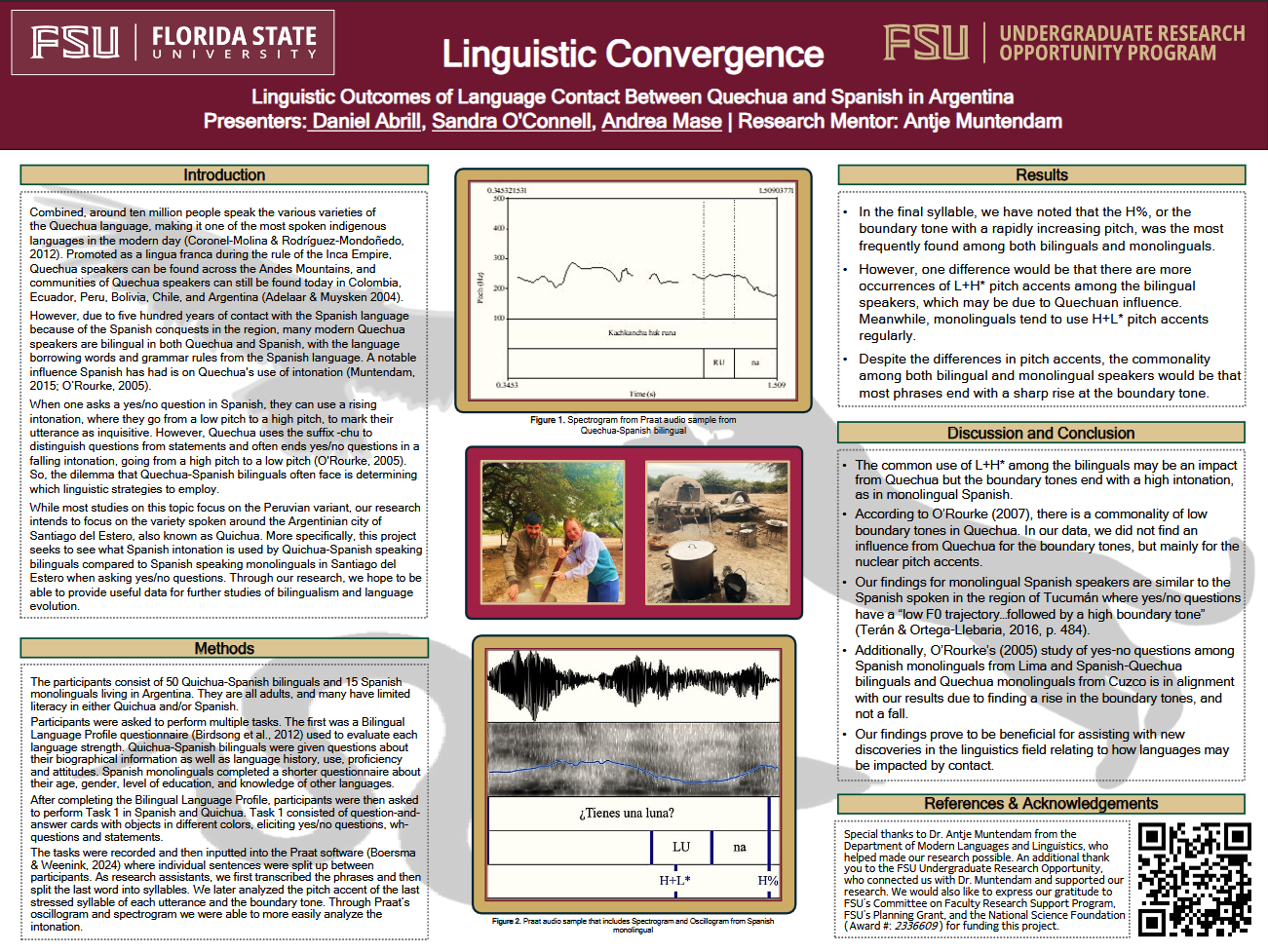Research Symposium
25th annual Undergraduate Research Symposium, April 1, 2025
Daniel Abrill Poster Session 1: 9:30 am - 10:30 am / Poster #259

BIO
Daniel Abrill is a First-Year International Affairs student from Orlando, Florida, with an interest in linguistics, history, culture, and politics. He received his Associates of Arts degree from Seminole State College prior to enrolling in FSU and intends to dual major in Political Science and International Affairs.
Linguistic Convergence: Linguistic Outcomes of Language Contact between Spanish and Argentina
Authors: Daniel Abrill, Antje MuntendamStudent Major: International Affairs
Mentor: Antje Muntendam
Mentor's Department: Department of Modern Languages and Linguistics Mentor's College: College of Arts and Sciences Co-Presenters:
Abstract
This project intends to study the linguistic outcome of language contact between Quechua and Spanish in Argentina. When Spanish speakers ask yes-no questions, they use a rising intonation, while Quechua uses a falling intonation and the marker -chu. However, due to centuries of intense contact between the two languages, bilingual Quechua-Spanish speakers may be accustomed to using intonation in both languages or in neither. Thus, the question this project seeks to answer is what intonation bilinguals and monolinguals utilize in Santiago del Estero, Argentina. For this research project, audio samples were collected from this region from 26 bilingual Quechua-Spanish speakers and 15 monolingual Spanish speakers in which the participants were asked to play a card game where they would ask each other yes/no- questions. As research assistants, we analyzed these audio samples in the platform Praat to view the type of intonation. The results we found so far reveal that most bilingual speakers tend to continue to use rising intonation in Spanish at the end of the questions, although there are some differences between monolinguals and bilinguals in nuclear pitch accents (i.e., the tone on the stressed syllable of the last word). In Quechua, most speakers do not use the marker -chu and use a rising intonation as in Spanish instead. Variation among participants is found, which can be explained based on language use and language attitudes. This study furthers bilingualism research in Argentina, which is underexplored, and adds onto existing theories on language evolution and effects of language contact.
Keywords: Linguistics, Spanish, Bilingual, Language, Quechua

